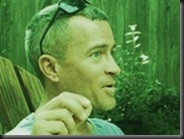By Milton Wendland
© 2012 Diversity Rules Magazine and Milton Wendland. All rights reserved.
www.diversityrulesmagazine.com
 Milton Wendland is a licensed attorney and a professor of Women, Gender, & Sexuality Studies at the University of Kansas, where he teaches courses in LGBT cultures, sexuality and law, and queer theory.
Milton Wendland is a licensed attorney and a professor of Women, Gender, & Sexuality Studies at the University of Kansas, where he teaches courses in LGBT cultures, sexuality and law, and queer theory.
Hi Milton! Are there very many colleges that offer majors in LGBT studies or at least courses in LGBT issues? Our niece is starting her senior year in high school, identifies as bisexual, and is interested in choosing a college that has classes in these areas. Eddie & Elaine
Yes there are! Hundreds in fact!
The first course focusing on lesbian and gay issues was offered at the University of Nebraska in Lincoln back in the very early 70s. Since then there’s been an explosion of LGBT-specific courses and the establishment of dozens of departments, majors, and graduate (M.A., Ph.D.) programs in LGBT-related studies. Many colleges and universities also offer community-outreach or short-form courses that are perfect for anyone who just wants to learn more but who is not seeking a degree.
A wonderful resource, updated regularly, is the webpage created and maintained by Dr. John Younger at the University of Kansas. His website lists courses, academic programs, and degree programs in LGBT studies across the United States and Canada as well as study abroad programs and related information. What makes the website useful is not only that it lists current information but also shows the development of different programs over the last couple of decades.
The website is located at: http://www.people.ku.edu/~jyounger/lgbtqprogs.html.
There are some specific LGBT studies programs (sometimes called Queer Studies) but usually LGBT specific majors and courses are housed in departments of Women’s Studies, Sociology, Gender Studies, American Studies, English, Social Welfare, Psychology and the like, so as your niece is considering colleges she would want to cast her net widely. And with new courses and programs in development at any time, Younger’s website is a starting point but not the final word. (His contact info is listed if you have additions to his page.) For students considering college or an advanced degree, it is important to look closely at a department’s website and recruitment materials and to ask the department faculty and current students about the LGBT content of their courses.
Of course, Younger’s website is only the tip of the iceberg as LGBT content is common in courses across the university curriculum. For example, a course in American literature is likely to include books by LGBT writers; a history course on American in the 1970s would include Gay Liberation among the topics studied. Even business and law schools are paying more attention is being paid to LGBT issues because LGBT people are, of course, a segment of the consumer market, a potential client base for legal services, and currently at the center of many cultural debates.
Another consideration as your niece is college hunting is the general campus climate for LGBT people – everything from safe housing to academic programs to leadership opportunities and crime rates. Campus Pride conducts surveys of many American colleges and universities and makes the results available on their website: http://www.campusclimateindex.org. The site also lists LGBT-related scholarships, student groups (including fraternities and sororities that are LGBT-welcoming), and other important issues for LGBT students or allies to consider when choosing where they will meet their educational goals.
